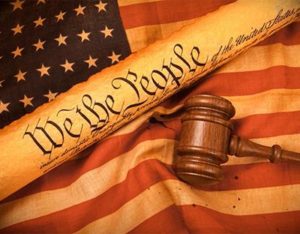With all this chatter and blather about the census and whether the government should ask whether U.S. residents are “citizens” of this country, I decided to turn to my handy-dandy copy of the U.S. Constitution.
So, I turned to Article I, Section, Clause 3 of the document with which Donald Trump needs to acquaint himself. It speaks to how the nation will count “free Persons” living within our national borders.
I was looking for a certain word. I looked for the word “citizens” in the Constitution. It’s not there. Not in this passage of the governing framework the founders built to create our government.
Donald Trump has given up his effort to include a citizenship question on the census forms that will be sent out. Indeed, the question seems to violate the U.S. Constitution, which refers to the enumeration of “free Persons.” That means residents. Not citizens.
The motive behind the citizenship question appears to be aimed at driving down the number of people living in this country. What does that mean? I guess it means to Trump and his fellow Republicans that a citizenship question would exclude non-citizen residents from being counted, which theoretically could deny Democratic-leaning congressional districts some elements of needed clout.
That brings up another question I believe is getting short shrift among those who debate this stuff in Washington, D.C. What would this have meant for those non-citizens who are in this country legally?
Trump has signed an executive order that he says will clarify and enhance the data gathering to determine how many non-citizens comprise the total U.S. population. My understanding is that the Census Bureau already keeps track of non-citizens.
For the government, though, to ask the question as part of its constitutional responsibility in counting all “free Persons” who live here would strike residents who must be counted … as the Constitution requires.
